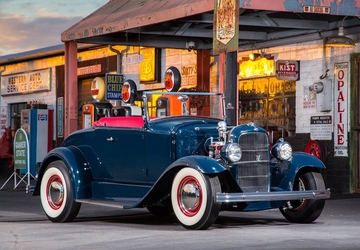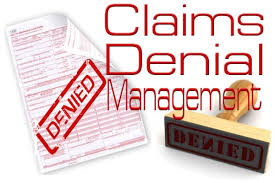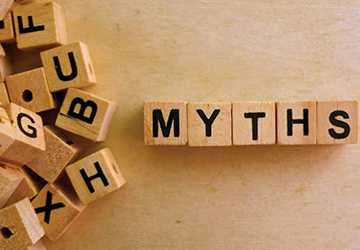How to Determine the Best Insurance for Vintage Cars
Classic cars are valued by car enthusiasts around the world for their timeless aesthetics and historical significance. These vehicles are often considered treasures and deserve to be preserved for future generations to enjoy. If you're lucky enough to own such a classic beauty, it's important to protect it with the right insurance. Unlike modern cars, insuring classic cars requires a different approach due to their unique features and value. This guide is designed to help you choose the most suitable insurance for your valuable classic car, considering all the specific factors.
Know the value of your classic car:

The first step to getting proper insurance for your classic car is knowing its true value. V Classic cars can increase in value, unlike modern cars, which often lose value over time due to factors such as wear and tear or outdated technology. Therefore, it is highly recommended that you start your insurance journey by getting a professional appraisal for your classic car.
This appraisal accurately determines current market value and takes into account factors unique to classic cars, such as condition, rarity and historical relevance. This value can then serve as a baseline to help you choose coverage that will adequately protect your valuable vehicle. Remember: insuring a classic car is about protecting and preserving a piece of history.
Research Expert Classic Car Insurance Providers:
Classic cars require special insurance tailored to their individual needs. Traditional car insurance may not provide adequate protection for the unique features of a classic car. Research and identify insurance companies that specialize in insuring classic cars. These providers typically have a better understanding of the market, the risks associated with classic cars, and know how to adjust their policies accordingly.
Look for an insurance company with a good reputation for classic car insurance. Check out online reviews to get recommendations from other classic car enthusiasts, or contact a classic car club to find a trustworthy insurance provider. It is also vital to ensure that the insurance company has a history of successfully handling vintage car claims efficiently and reasonably.
Evaluate coverage options and requirements:
Choosing the right insurance for your classic car ensures adequate protection. Here are some coverage options and requirements to consider:
a) Agreed value protection
One of the most important aspects of insuring a classic car is the type of coverage. Value insurance is a popular option for classic cars. Unlike traditional car insurance, which typically reimburses the actual cash value of the vehicle, agreed value coverage ensures you receive a predetermined amount in the event of a total loss or theft. This agreed value is determined based on an appraisal of your classic car during policy negotiations.
b) Comprehensive insurance coverage
Comprehensive comprehensive insurance is a must for classic cars. It protects your vehicle from multiple risks such as theft, fire, vandalism, natural disasters, and more. Classic cars are more susceptible to certain risks due to their age and historical value, which is why comprehensive insurance is vital for safety.
c) Liability insurance
While protecting your classic car is crucial, liability insurance is equally important. This protects you in the event of an accident for which you are at fault and covers damage and injury to others involved. Liability insurance is often required by law and should not be overlooked when insuring your classic car.

d) Uninsured/Underinsured Motorist Coverage
This coverage ensures you are protected in the unfortunate event of an accident involving an uninsured or underinsured driver. It helps pay for damages and medical bills if the at-fault party does not have adequate insurance.
e) Mileage limits and usage
Many classic car insurance policies include mileage limits to limit the use of the vehicle. Please make sure you understand and agree to these limitations to avoid problems with your insurance coverage. If you plan to use your classic car for exhibitions, shows or the occasional leisure trip, communicate this clearly to your insurance company.
f) Storage and security requirements
When insuring a classic car, there are often special storage and security requirements. This may include parking the vehicle in a secure garage, using an approved anti-theft device or implementing additional security measures. Complying with these requirements is critical to maintaining coverage and protecting your investment.
Compare quotes and negotiate terms:
Once you know the value of your classic car and the insurance options you need, it's time to get an insurance quote. Contact several specialist classic car insurance providers to compare their quotes and cover conditions. During this process, don’t hesitate to negotiate terms to tailor the policy to your needs and budget. Consider the deductibles, coverage limits and additional benefits each insurance company offers. Strive to strike a balance between comprehensive coverage and affordability. Keep in mind that the cheapest policy may not always provide the best protection. So carefully evaluate the value and benefits each option offers.
Looking for expert advice and advice:
Choosing the best insurance for your classic car can be complicated, especially if you're new to classic car ownership. Don’t hesitate to seek expert advice, such as that of a classic car restoration professional or an experienced collector. There are also benefits to joining a classic car club or online community. Members often share their insurance experiences and can recommend reputable insurance providers who specialize in classic cars. Working with these communities can provide you with a wealth of information to help you make informed decisions about classic car insurance.
Conclusion:
Owning a classic car is a labor of love and protecting your investment with the right insurance is crucial. Special requirements and considerations apply to classic cars. Therefore, it’s important to choose a policy that suits your car’s value, usage and storage needs.When choosing the best insurance for your classic car, look for a specialist insurance company, consider the agreed value cover, and carefully review the reputation, coverage options, deductibles and premiums of the potential insurance company. By taking the time to research and choose the right insurance, you can ensure that your prized classic car remains a source of pride and joy and is protected from the uncertainties of the road for years to come.





